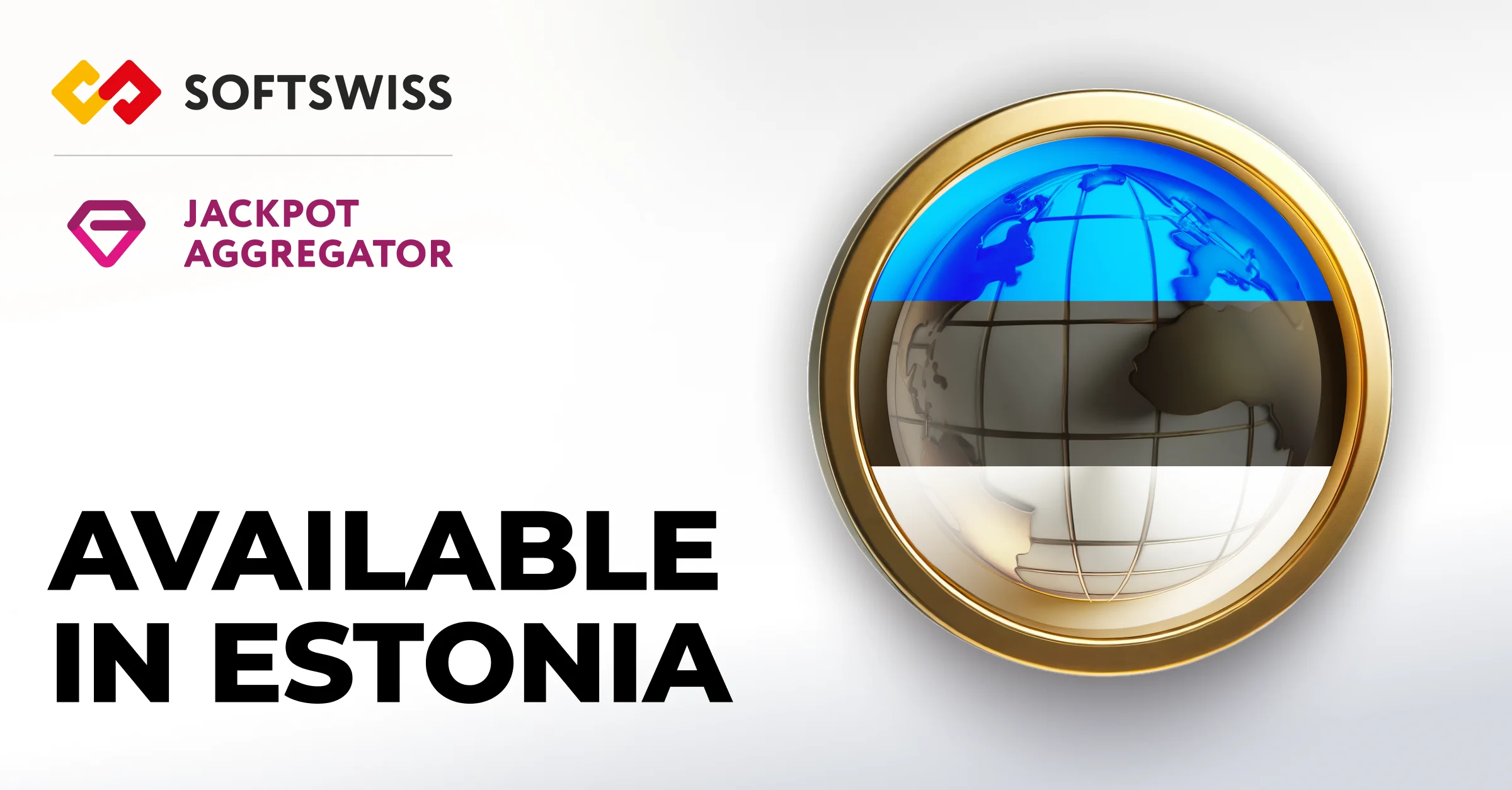Estonia is one of the youngest and most prominent gambling jurisdictions in the European Union. According to the legislation news, the country legalized land-based gambling only 26 years ago, and online gambling in Estonia was regulated only in 2009. So, it is a relatively new area for foreign ops to explore. Although the market of this country is relatively small, it has been growing steadily for the past ten years.
Unlike many EU countries, in over ten years that online casinos in Estonia have been legal, gambling operators have been enjoying consistent regulations and market growth. Low taxes, adequate licensing costs, and the long duration of a license are the main factors that make Estonia one of the most attractive countries for gambling operators to enter.
But before launching in a new market, it is vital to conduct the research. This article will help you fill in the gaps and know all essential info about the Estonian gambling industry in 2024.
Gambling history in Estonia
As an ex-Soviet Union republic, Estonia doesn’t have a long history of gambling. In USSR, the law banned all types of games of chance. But, at the time, illegal casinos were operating in the country.
But is gambling legal in Estonia now? The short answer is yes. In 1991, Estonia gained independence, and the national lottery operator – Eesti Loto – launched the same year. But gambling in Estonia was legislated only in 1994 with the introduction of the Lottery Act. And in 1995, the government adopted another law – the Gambling Act. The document regulated four types of gambling activities, including:
- games of chance;
- games of skill;
- totalizators (toto);
- betting.
Most of the casino venues opened in the Estonian capital – Tallinn. However, it soon became clear that the legislation was incomplete and outdated, as it didn’t regulate the online gambling market, which was rapidly gaining popularity. It also led to high rates of offshore gambling.
The Estonian economy was hit hard by the 2008 financial crisis – the GDP declines were the third highest in the European Union. The economic downturn also affected the gambling industry. The land-based casino market in 2008 was almost three times bigger than in 2010. Only in Tallinn, from 2008 to 2010, the number of terrestrial casinos fell from 91 to 33.
On the flip side, this crisis had boosted the launch of online casinos in Estonia. In 2008, the new Gambling Act repealed two previous legislations. The law came into effect at the beginning of 2009. And in 2010, Estonia was officially recognized remote gambling. After that, the online gambling market of this country has been stable and even growing. Legislation of remote gambling also helped to reduce the rate of problem gamblers to below 2% of the adult population.
The 2010s have also brought the change to the Estonian lottery sector. Before 2010, 10% of the lottery market belonged to multiple private companies. However, the new gambling laws in Estonia instated high requirements for lottery licensees. As a result, the state-owned company, Eesti Loto, became the only lottery operator in the country. In 2009, the government considered privatization of the company. And in 2011, the Customer Protection Board has started a legal battle against Eesti Loto for unauthorized promotion of their services.
The outbreak of the COVID-19 pandemic in 2020-2021 has had a significant impact on the Estonian gambling industry. Like in any other country, gambling venues in the land-based sector were closed and suffered a blow to revenues. The betting niche has also experienced a drop in GGR due to the lack of live sports events: from €470m in 2019 to €258m in 2020. The revenues in the online gambling sector, however, have increased to unseen before levels: from €1.64bn in 2019 to €2.05 in 2020.
Structure of the gambling sector in Estonia
The gambling market of Estonia is relatively small, as the size of the country itself is not so big. But the number of active and licensed operators is constantly growing and has recently reached 25 companies (including state-owned lottery operator Eesti Loto). And 21 companies are licensed to operate online. The globally renowned gambling operators, such as bet365, PokerStars, Betsafe, and Unibet, are among the most popular remote games of chance providers in Estonia.
Estonian gambling market consist of the following niches:
- games of chance (casino games, bingo, etc.);
- toto or sports betting;
- lottery;
- games of skill;
- commercial lottery.
As seen from the chart below, sportsbooks and totalizators dominate the Estonian gambling market. Estonians can place wagers on sports both online and offline. Horse race betting is also legal in the country and is run by AS Totalisaator.
Olympic Entertainment Group (OEG) is the biggest casino operator in Estonia, which owns nearly 40% of brick-and-mortar casino venues in the state. There are also many slot halls in the country, with 35 establishments in Tallinn only. Casino games and slot machines are also allowed on cruise ships and are supplied by PAFER PLC – the only company licensed to operate on ships.
All lottery raffles in Estonia are organized for charity purposes only and are subject to the 18% tax rate. Since 2010, state-owned Eesti Loto has had a monopoly on lottery services in the country. The company offers the following games of chance to Estonians:
- lotto;
- keno;
- bingo;
- scratch cards.
Gambling laws and regulations in Estonia
Gambling activities in Estonia are regulated by the 2008 Gambling Act and the 2009 Gambling Tax Act. The Estonian Tax and Customs Board is the main regulatory body in the field of gambling.
Gambling is defined as a game with a random outcome in which a player makes a financial bet and may receive a monetary prize as a result. As said before, the following gambling activities are legal in Estonia:
- gaming (casino games, poker, and bingo);
- betting (betting, sports/horserace betting, fantasy betting);
- lottery
- social and skill games (social games without prizes in money form, skill games, and competitions).
The legal age for gambling depends on the type of activity:
- lottery – 16 years;
- sports betting – 18 years;
- casino – 21 years.
There is also a centralized self-exclusion system, in which players can register for a period from six months to three years. To enhance player protection, gambling authorities also conduct gambling addiction surveys twice a year.
Although Estonia belongs to the European Union, EU online gambling licenses are not valid in the country, and non-Estonian ops have to apply for a separate gambling permit and vice versa.
Licensing requirements
To offer gambling services to Estonian, an operator has to obtain a license from the Tax and Customs Board. However, companies don’t need the Board’s permission for the following games of chance:
- game of skill, in which only prize is the opportunity to re-enter the game;
- sports competition;
- lottery with prize pool below €1 000;
- commercial lottery with a prize pool below €10 000.
In these cases, ops also don’t pay gambling tax.
Before entering the Estonian market, operators have to go through a two-step licensing process:
- verify its eligibility by getting an activity permit;
- apply for an organization license for each of its gambling areas.
If operators want to organize a commercial lottery, they have to submit a notice of economic activity instead of applying for the licenses.
The activity license is valid indefinitely and can be obtained under the following conditions:
- the applicant is a public limited company with a share capital of over €1 million for games of chance, €130k for toto, and €25k for a game of skill;
- the company is registered in Estonia, non-resident companies must register with the Tax and Customs Board;
- gambling is the only activity of the operator;
- all shareholders, beneficial owners, and executive managers of the company are reliable and haven’t committed a criminal offense.
The companies also have to pay the state fee, the size of which depends on the type of gambling they intend to offer:
- €47.94k for games of chance providers;
- €31.96k for toto providers;
- €3.2k for games of skill providers.
As for the organization (management) permit, the Estonian Tax and Customs Board can issue it only after the company is granted an activity license. This document allows to open a land-based gambling venue in any Estonian city, start a casino on a ship, or provide gambling services online.
Requirements for getting this type of license are different for land-based businesses and online casinos in Estonia.
| Conditions for obtaining a land-based gambling permit: | Conditions for obtaining a remote gambling permit: |
| get a land permit with consent from the local municipality or city government;implement an electronic accounting and control system, which contains info about the software, hardware, games, bets, and winnings. This system must be connected to the information system of the Tax and Customs Board;keep a list of people restricted from gambling (HAMPI);operator must pay a state fee of €3.2k (€640 for lottery). | implement an electronic accounting and control system, which contains info about the software, hardware, games, bets, and winnings. This system must be connected to the information system of the Tax and Customs Board;keep a list of people restricted from gambling (HAMPI);pay a state fee of €3.2k (€640 for lottery);a permit can be issued for more than one online casino. |
The Estonian Board grants licenses for remote games of chance, lotteries, and games of skill organizers for up to five years. The license for toto is issued for up to twenty years.
As for the lottery, organization permit, it can be issued only to the public limited company with a share capital of at least €1 million, all the shares of which belong to the state of Estonia.
Taxes and reporting
One of the most attractive parts of the Estonian gambling market is the low tax rate for operators.
As of November 2011, Estonian online gambling laws require remote games of chance and betting providers to pay 5% tax on the net gaming revenue. Lottery games are subject to an 18% levy on ticket sales, and commercial lotteries are taxed only if the winning pot’s value is over €15k.
Land-based gambling ops have to send 10% of the net revenue to authorities plus additional fixed fees, including:
- €1 278.23 per gaming table;
- €300 per gaming machine;
- €31.95 per gaming machine of the game of skill.
The gambling ops are required to report taxes and send annual reports to the Commercial Register. All of this is done online.
Advertising rules
The promotion of gambling services and products in Estonia is regulated by the 2008 Advertising Act, which enforced a blanket ban on casino and betting ads. The document allows the promotion of games of chance only in the following cases:
- on the premises of the gambling venues (such as hotels);
- on the board of the international ships/planes;
- in the buildings of airport/port;
- on the website of the gambling provider;
- ads in the form of post, e-mail, or phone if the client has subscribed to it and can cancel the subscription at any time;
- sponsorship announcement in form of outdoor advertising.
The lottery is the only gambling sector that is exempt from the ban.
Gambling regions in Estonia
As Estonia is a centralized country, it has uniform gambling laws. The city or municipality council can only restrict the opening hours of the gambling establishments located in its territory. The local councils can also ban a gaming venue from a building, which is near an educational center for kids.
Most brick-and-mortar casinos are based in the Estonian capital – Tallinn. Over 35 slot halls, which are very popular among the local players, are also located in this city. Nonetheless, offline gambling is more popular in rural areas, especially in Middle Estonia (49% of the population have gambled), West Estonia (46%), and South Estonia (44%).
Preferences of Estonian gamblers
The most recent study of the Estonian gambling market was conducted by the local statistic firm Kantar Emor in 2019. The research shows that gambling is very popular in this Baltic country, as 70% of Estonians have gambled at some point in their lives.
As for gambling habits, 25% of local online players and 20% of offline casino customers gamble weekly. This is evident in all forms of gambling.
There is also a high percentage of underage gambling in the country, as 60% of 15-20-year-olds have gambled at least once in their life.
The research also suggests that the average Estonian gambler is a male between the ages of 30 and 39. And men aged 40-49 from rural areas dominate the offline gambling market.
In 2019, offline gambling still was more popular than remote games of chance. But this gap is closing and with the effects of the global pandemic, online casinos will soon dominate the Estonian market. Lottery raffles and offline games of chance are more popular among rural citizens, while the urban population prefers casino games and poker.
The lottery is the most widespread form of gambling in Estonia both online and offline. According to the 2019 study, 43% of Estonians took part in the lottery raffle in the past two years (36% offline and 25% online). The other popular games of chance are:
- slot machines – 7% (most outside of casinos);
- sports betting – 6% (mostly online);
- casino games – 5% (mostly online);
- poker – 4% (mostly online);
- other money games – 11%.
Future of online gambling in Estonia
While the global pandemic has affected the land-based gambling venues in Estonia, leading to a drop in revenues and the closure of some establishments, the online gambling industry was thriving under the new condition. And now the country has an opportunity to strengthen and expand its iGaming market.
Uniform regulations, which have been consistent for over ten years, only contribute to the growth of online gambling in Estonia. In the past few years, 6 new operators entered the local gambling market, increasing the number of licensed ops from 18 to 25. More and more online casino and sportsbook operators opt for entering the Estonian market.
Read more: Best iGaming Aggregators















